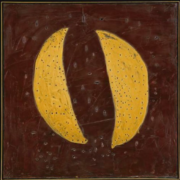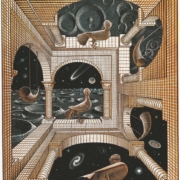From soma to psyche. The journey of the Sapiens
Abstract – for all contributions
Ferrari’s psychoanalytic hypothesis is based on the idea that the mind acquires the drive for its own evolution from the body. From this approach also derives the idea that disharmonious balances can be created between the components of the individual system, especially between the body dimension and the psychic dimension, which are in mutual relation, and sometimes also that a rediscovered balance of the body can help a path of recovery in states of mental suffering. The experience that Fausta Romano has been developing for some time, searching for practices that can accompany the path between analyst and analysand Read more


